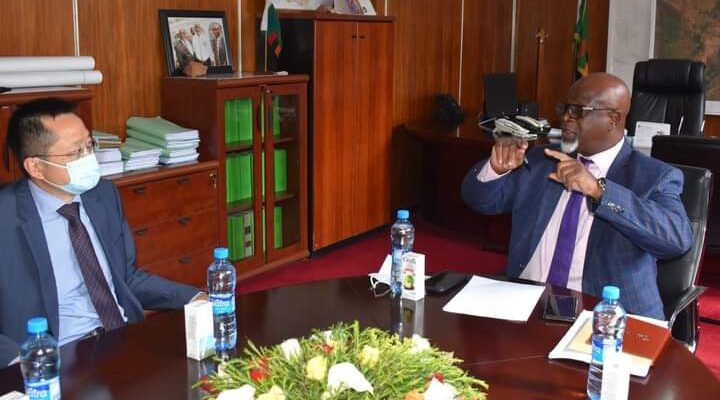Government is in the process of beginning the domestication of the post 2020 global biodiversity framework which was adopted in Canada December 2022.
During the 15th session of the conference parties agreed to ensure the convention on biological diversity whose frameworks aims at reporting and reversing biodiversity were effected by 2030 at the national and global level.
This is according to Lands and Natural Resources Minister, Elijah Muchima at the launch of the Biodiversity Finance Accelerator (BioFA) programme and SEED 20 years celebration on Friday evening.
He said to contribute to this global target, Government would aim to reverse the 2015 biodiversity national plan to align it the global framework.
He said government would be conducting a national assessment to come up with a lot of baseline on the status and ecosystem goods services.
“This process will produce reliable information for policy decisions making. The reversed action plan will domestic best practices in the protection and sustainable transition of biodiversity in the country,” Muchima said.
Read more: Government decries alarming degradation of landscapes, as it signs MOU with WWF
He also said government was strengthening policy and regulatory framework on climate change, natural resources and environment to promote transition to a modern green economy.
Muchima said this was also meant to boost the coordination mechanism.
He expressed concern that climate change and biodiversity loss were a huge threat to Zambia’s key sectors such as tourism, agriculture, forest, health, energy, water, fisheries and livestock among others.
He pointed out that most of these sectors were important to provision of jobs, goods and services for the local people.
“Climate change and biodiversity loss have the potential to cause poverty and reduce the gross domestic product. Some of the main drivers of biodiversity loss include deforestation and forest degradation among others.
“Therefore, government is committed to take urgent action for the country to mitigate and adapt effects of climate change, conserve and protect biodiversity to ensure a sustainable future and prosperity for the Zambian people” Muchima said.
On the BioFA programme, he said Zambia needed this initiative and it was timely looking at the effect of climate change.
BioFA mobilises biodiversity investments and scales biodiversity positive entrepreneurship thus, contributing to the sustainable use, conservation and restoration of ecosystems in Malawi and Zambia.
The programme has been launched by WEAC with support from Adelphi and will be implemented in Zambia and Malawi.
At the same event, German Ambassador to Zambia, Anne Wagner, said the country would continue to support efforts fight climate change as well as promote sustainable development.
Wagner said 14 small and medium enterprises had already gone through training under the programme.
WARNING! All rights reserved. This material, and other digital content on this website, may not be reproduced, published, broadcast, rewritten or redistributed in whole or in part without prior express permission from ZAMBIA MONITOR.












Comments